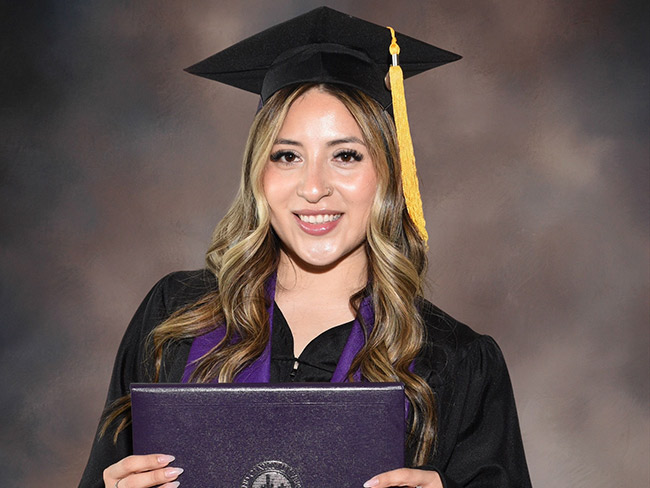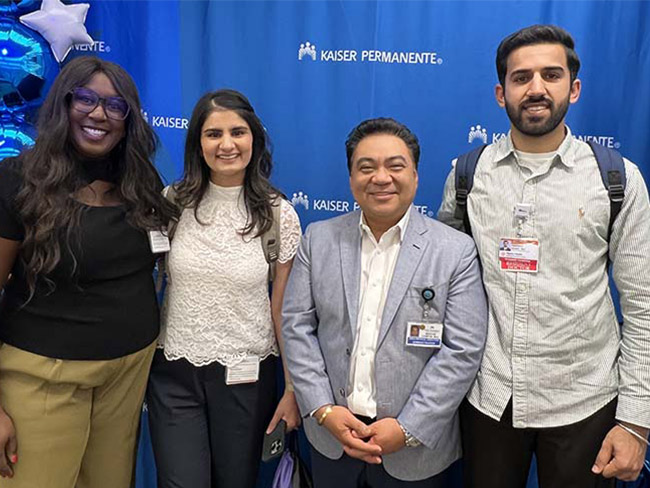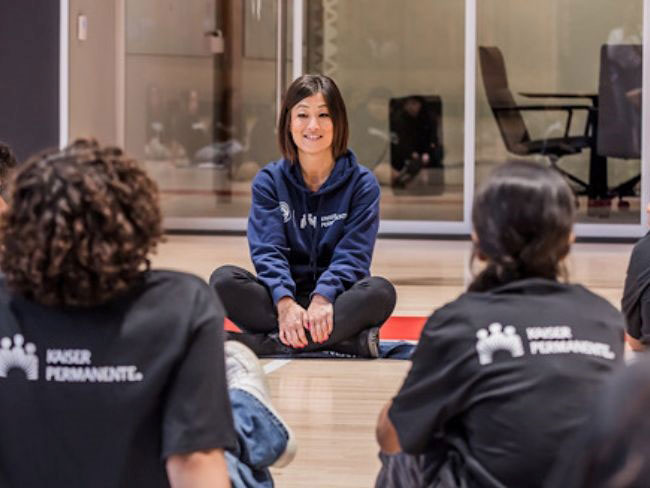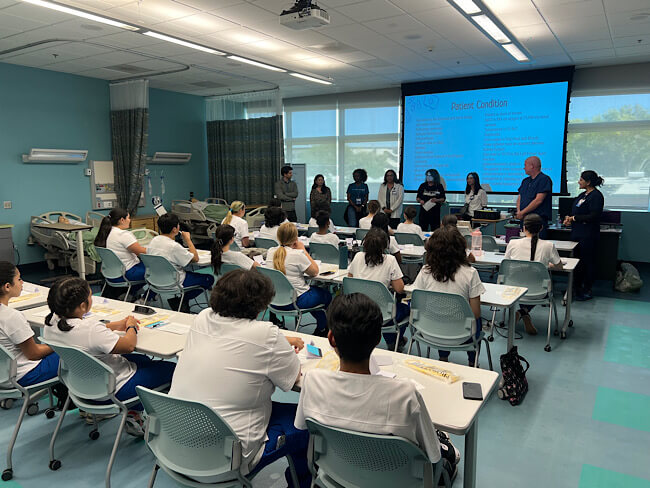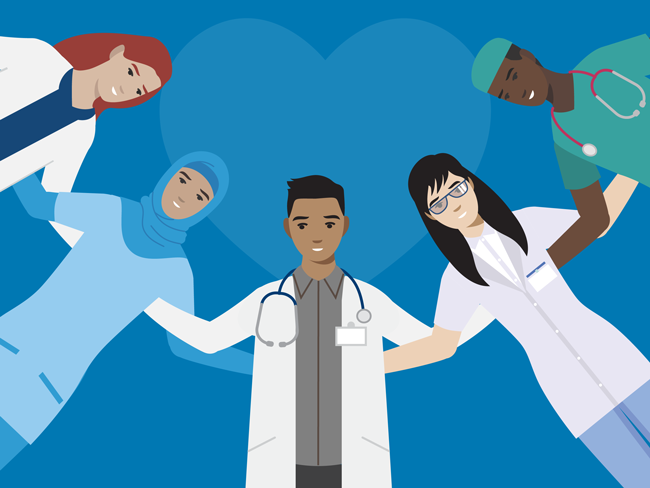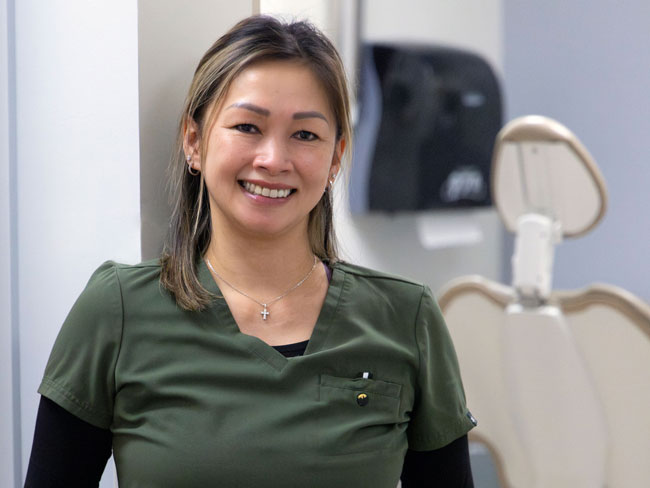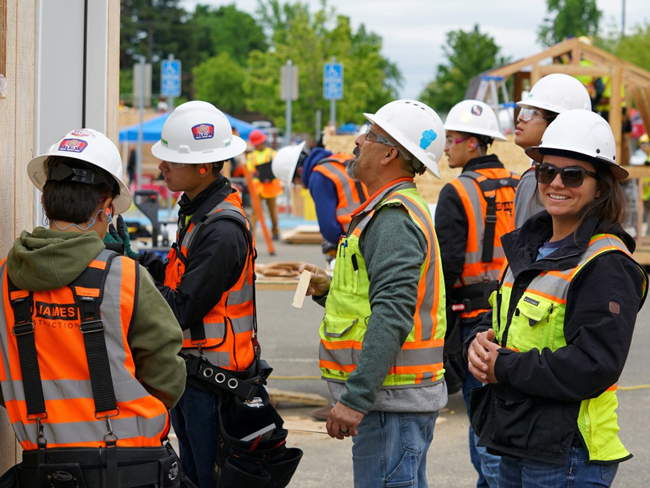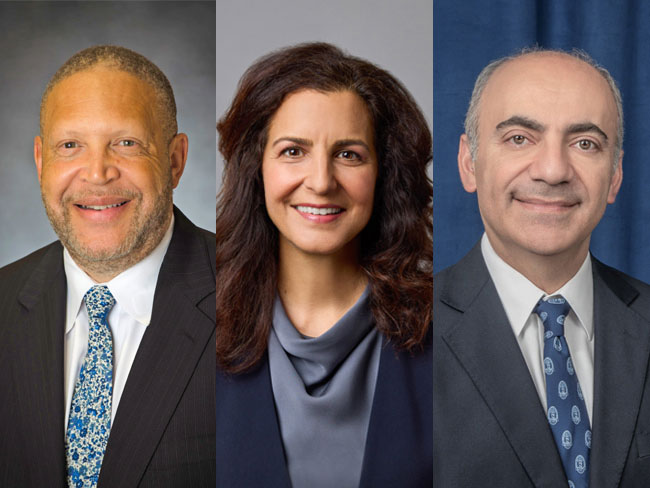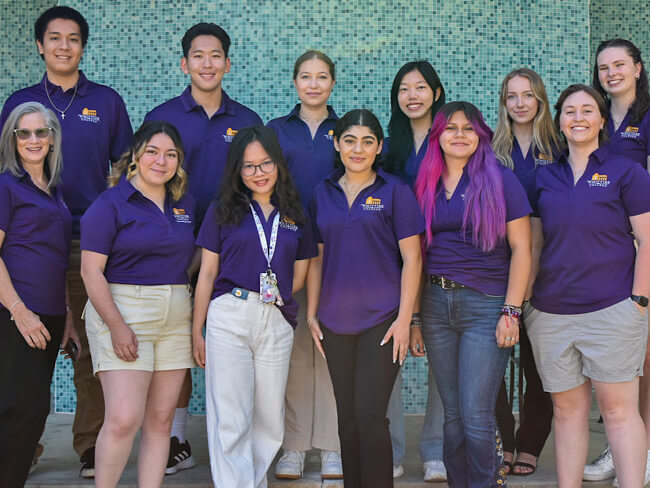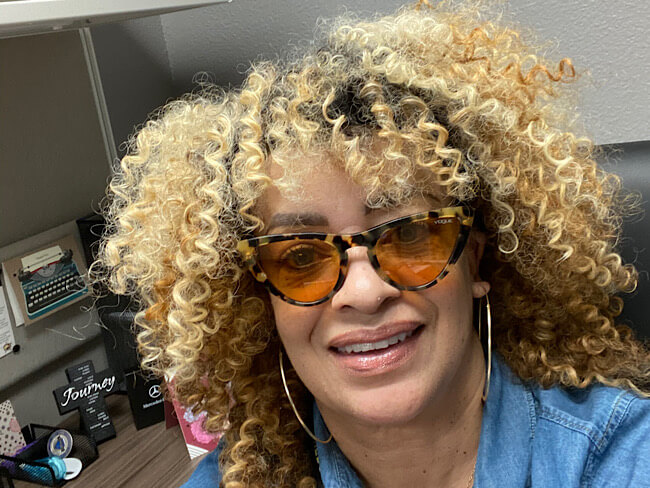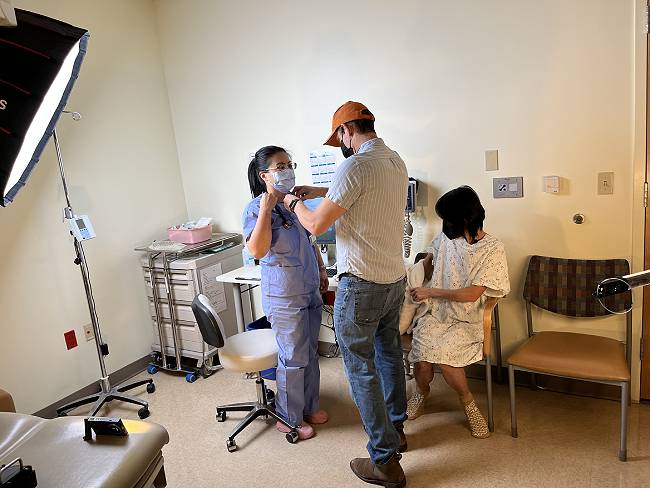The U.S. needs more mental health workers: How we’re helping
We’re supporting the well-being of our members and communities through a program that encourages more people to become licensed clinicians.
Our Mental Health Scholars Academy provides financial support and training for employees seeking to become therapists, counselors, or social workers.
John Vista loved his job in business operations at the Kaiser Permanente Fontana Medical Center, where he worked as a supervisor in the addiction medicine and psychiatry department.
He was fascinated by the work of the doctors, nurses, and therapists in his department. And he felt great when patients reached out to express gratitude for the care they received.
“Hearing what our therapists were doing inspired me to want to become a mental health professional,” Vista said. “But I didn’t see how it could ever happen.”
Vista was nearly 40 years old, married, and raising 2 young kids. Plus, his degree and all his professional experience were in business management, not mental health care.
Then one day in 2019, he heard about a program that helps Kaiser Permanente employees become mental health professionals: the Kaiser Permanente Mental Health Scholars Academy.
Helping employees earn mental health degrees
The United States urgently needs more mental health professionals. Nearly half of the U.S. population lives in areas without enough therapists and clinicians.
U.S. population living in areas
without enough therapists
Our Mental Health Scholars Academy is one of the ways we’re addressing this serious issue.
"We take our own employees who want to be mental health professionals, pay for 75% of their tuition at a master’s program, and give them opportunities to train in Kaiser Permanente settings,” said Don Mordecai, MD, national leader for mental health and wellness at Kaiser Permanente. “There’s a lot of potential to expand the workforce in this way.”
Vista applied for the program and was accepted. He began working toward his master’s degree in August 2020. He took online courses in the evenings after working all day.
“It was stressful at times,” he said. “But any time I needed flexibility in my schedule, I talked with my manager and my teachers. They made sure I had everything I needed to get it all done.”
Increasing diversity and overcoming stigma
One important reason Vista wanted to become a mental health professional was to become an advocate in the Asian American community.
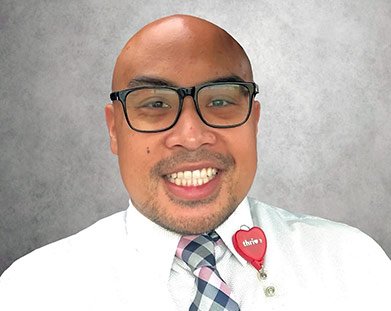
John Vista made a mid-career shift to become a licensed mental health care provider while working full time.
“In my culture, there’s stigma around mental health,” said Vista, who is Filipino American. “It’s almost looked at as a weakness, like there is something wrong with you if you can’t handle your emotions. It wasn’t until I started working in the field that my thinking started to change.”
Increasing the diversity of the mental health workforce is central to the Mental Health Scholars Academy’s mission.
“When someone sees a therapist who speaks their language and is like them in some way, it can help open the door for them to get the care they need,” said Dan Gizzo, PhD, director of the Mental Health Scholars Academy.
Helping more people get licensed
After earning a master’s degree in marriage and family therapy, Vista wanted to get his license to practice in California. But first, he needed 3,000 hours of supervised clinical experience.
Unfortunately, the U.S. doesn’t have a formal program to ensure graduates can get those hours. People seeking licenses often need to take unpaid positions to meet the licensing requirement. Sometimes, people even pay for supervision.
This means many people who earn advanced mental health degrees don’t go on to become fully licensed and can’t offer mental health care to patients.
Everyone enrolled in our Mental Health Scholars Academy gets connected to the supervised experience they need after completing a master’s degree. They have the opportunity to complete their hours at Kaiser Permanente, where they can receive both pay and benefits while they complete their training.
Excited to start his new career
Vista was grateful that Kaiser Permanente provided a seamless transition from his academic program to his clinical training. He completed his practicum training hours in December 2022.
The Mental Health Scholars Academy then connected him to recruiters, who helped him apply for jobs. He accepted an offer from Kaiser Permanente and will soon be a full-time psychiatric counselor — less than 3 years after beginning his studies.
“I felt extremely supported all along the way,” Vista said. “I don’t see how I could have possibly gotten to where I am now without this program.”
Supporting the mental health workforce of the future
While our Mental Health Scholars Academy is currently only available to Kaiser Permanente employees in California, post-master’s supervised clinical training for anyone working toward licensure will soon be available in all our markets.
These programs are just one way we’re expanding access to high-quality mental health services. We also offer a wide range of continuing education programs and community grants.
And internships, residencies, and other educational opportunities are available through our Mental Health Training Program in Northern California. Similar offerings will be available soon in Southern California through our Behavioral Health Training Institute.

